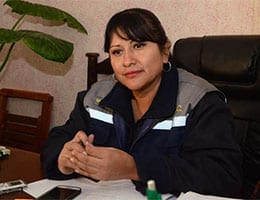 Intendant is a term from the Latin intendens , in turn derived from intendĕre (which can be translated as “direct” ). Depending on the region , the concept has different uses.
Intendant is a term from the Latin intendens , in turn derived from intendĕre (which can be translated as “direct” ). Depending on the region , the concept has different uses.
The first meaning indicated by the Royal Spanish Academy ( RAE ) in its dictionary refers to the individual who is the highest authority in economic matters. The notion also refers to various leadership and management positions.
In the broadest sense, mayors are officials with powers and powers over a certain territory. In several South American countries, mayors are the municipal leaders : they are in charge of the Executive Branch of a municipality .
A mayor, in this framework, is an authority that exercises power in a specific administrative entity (the municipality). While a president governs the destinies of a country and a governor of a state or province, a mayor directs the municipal government.
The scope of this position depends on the political and legal system of each nation . The mayor can govern a single city or several localities that are part of the same major division.
In the province of Buenos Aires ( Argentina ), for example, each mayor heads the Executive Branch of a party , which in turn can be made up of many cities. The inhabitants of the parties elect their mayor through an electoral process and grant him a four-year mandate.
The District of La Matanza , to cite one case, is the most populated in the province of Buenos Aires . Its mayor governs sixteen cities , among which are San Justo , Aldo Bonzi , Lomas del Mirador , Ramos Mejía , Tapiales and Virrey del Pino , among others.
Given that, as mentioned above, the characteristics of this position are different depending on the region in which it is located, we will see below some of the most common functions of the mayor:
* develop policies, development programs and plans for your region and approve them. In addition to this, it must be in charge of the budget to carry them out, adjusting to national policy;
* with respect to the National Regional Development Fund and its distribution, you must decide how to invest the resources your region receives;
 * make decisions corresponding to the use of resources from sector investment programs for different projects. These resources are assigned by the nation to all regions in accordance with the provisions of the National Budget Law ;
* make decisions corresponding to the use of resources from sector investment programs for different projects. These resources are assigned by the nation to all regions in accordance with the provisions of the National Budget Law ;
* with the objective of regulating the aspects of its competence, it must dictate general rules;
* When municipalities require your advice, the mayor must provide it. This occurs especially when they must formulate development plans and programs;
* the development of prevention and protection programs to deal with disaster situations without prejudice to the powers of other authorities at the national level;
* adopt all the measures necessary to face catastrophes and emergencies at the regional level;
* act directly in matters related to international cooperation as long as it does not exceed the limits that the National Government has established through the various agreements and treaties;
* given that the mayor must act in accordance with the instructions and guidance of the Head of State, any powers transferred to him must be exercised absolutely irrevocably.
The aforementioned orders can reach the mayor directly from the Executive Branch or through the Minister of the Interior. It is important to highlight that the relationship between the mayor and the President of his nation is of utmost importance, since only through their joint work can they offer the entire territory the conditions it needs for its correct social and economic development.
